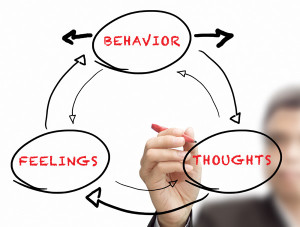Get Help With Alcohol Addiction
- Find meetings near you
- Discover online or in person meetings
- Get 24 hour information on addiction
Anyone who’s struggled with alcohol abuse issues for any length of time well knows how overwhelming cravings can soon thwart any desire to cut back or stop drinking. After so many months of excess drinking, alcohol’s cumulative effects gradually take hold of your thinking, will and behaviors. Alcohol rehab programs specialize in addressing both the physical and psychological pull alcohol has on a person’s life.
More than anything else, the motivation to stay sober plays a pivotal role in your recovery success. Alcohol rehab incorporates a range of behavioral-based treatments designed to leverage your motivation while helping you develop the coping skills needed to live a clean and sober lifestyle.
The Effects of Alcohol Abuse
Alcohol abuse changes how the brain and body work, leaving a person dependent on its effects to feel normal. Once drinking stops, the brain works to restore chemical equilibrium, according to the University of Maryland Medical Center. In the process, feelings of anxiety, stress and depression develop. These conditions may well stay with a person for months into the recovery process.
Likewise, trying to manage daily life in the midst of the very routines and environments where drinking took place can quickly thwart a person’s motivation to stay sober. Alcohol rehab treatment helps to lessen the physical aftereffects of alcohol through medication therapies while helping you develop the types of routines and behaviors that support a sober lifestyle.
Behavioral Treatment Interventions
While alcohol’s aftereffects may be rooted in the brain’s chemical instability, changing your thoughts, behaviors and overall life outlook is essential to overcoming the addiction. For this reason, alcohol rehab programs use behavioral treatment interventions as a means for undoing the destructive psychological aftereffects of alcohol abuse.
According to Perelman School of Medicine, behavioral treatments commonly used in alcohol rehab include:
- Cognitive Behavioral Therapy
- Motivational Interviewing
- Contingency Management
Whereas cognitive behavioral therapy works to enhance motivation by addressing the underlying belief systems that support alcohol abuse, motivational interviewing and contingency management focus on helping you incorporate healthy behaviors and routines within your daily lifestyle.
12 Step Support Group Work
Over time, alcohol abuse becomes a way of coping with internal emotional conflicts that arise in the face of daily life pressures and stressors. In this way, drinking gradually eventually takes over a person’s lifestyle as alcohol’s effects continue to weaken and impair the cognitive/ emotion-based areas of the brain.
The 12 Step support group model plays an integral role within the alcohol rehab treatment approach. The 12 Step model offers guidelines on how to apply principles of recovery and relapse prevention within your day-to-day life. In effect, the 12 Step model uses your motivation to stay sober as the basis for working the steps in the program.
Considerations
Ultimately, your motivation to stay sober becomes the driving force in recovery. Engaging in activities and pursuits that nurture your motivation offers the quickest path to a successful recovery process. Alcohol rehab treatment provides the support and guidance needed to achieve these ends.
If you’re considering alcohol rehab treatment or have questions about programs in your area, feel free to call our toll-free helpline at
800-948-8417
Who Answers?
for more information.
